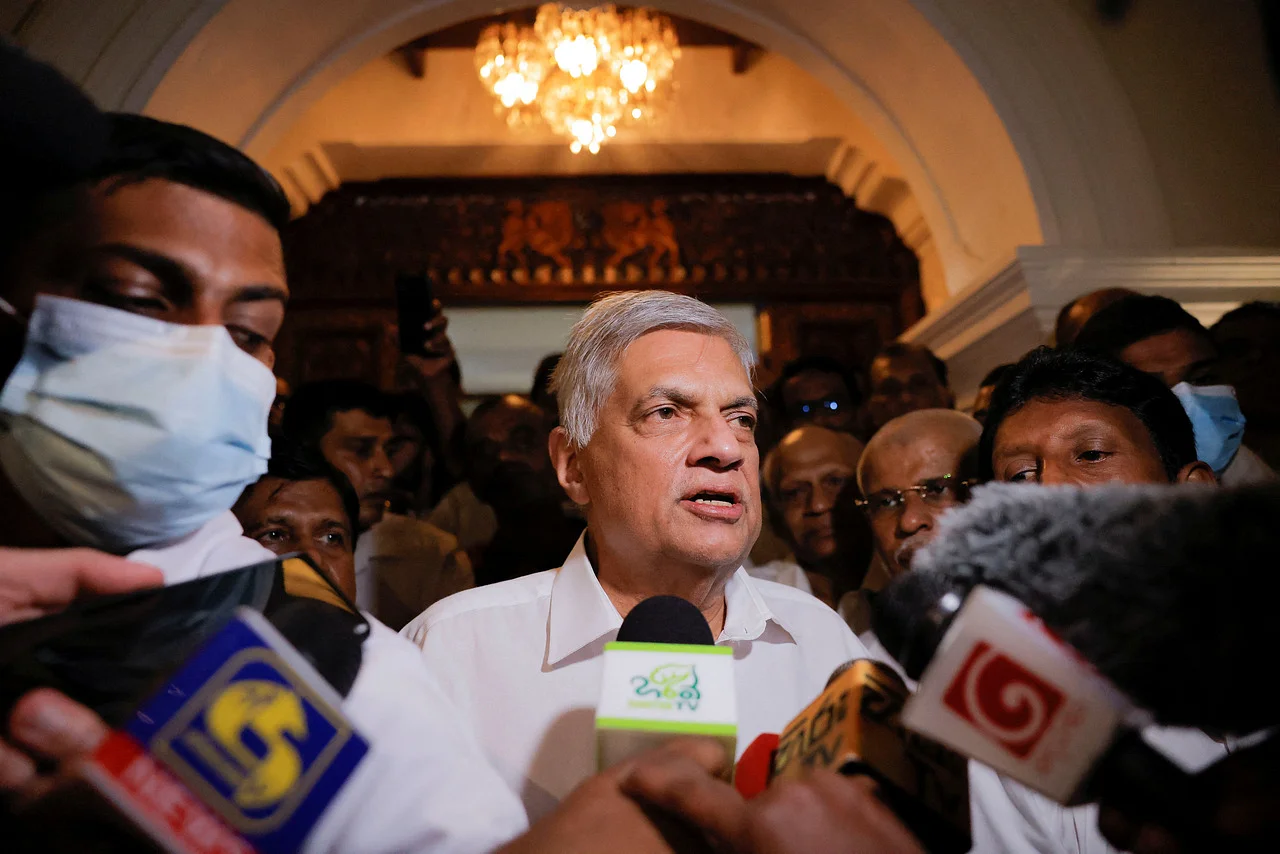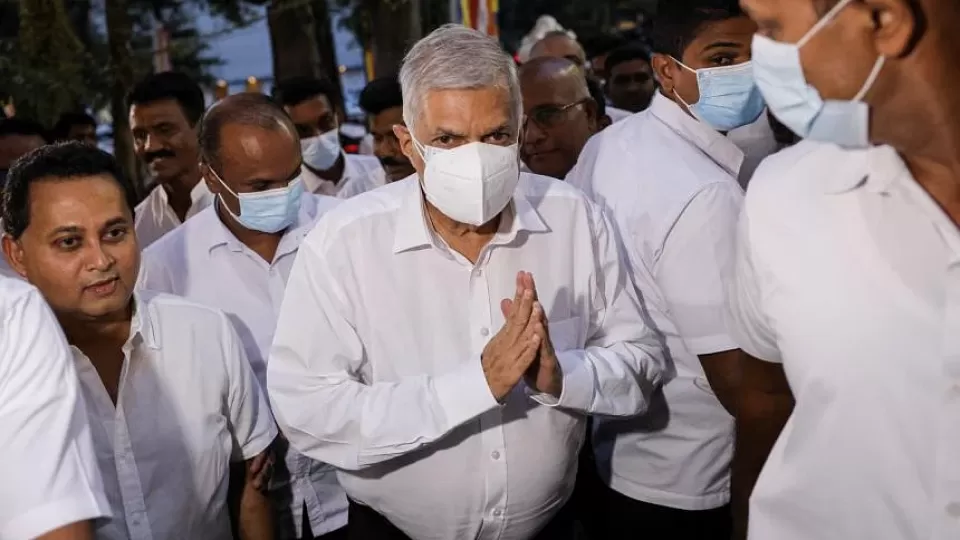July 21, 2022
BANGALORE – Sri Lanka’s Parliament voted for Mr Ranil Wickremesinghe as president on Wednesday (July 20), replacing Mr Gotabaya Rajapaksa, who fled abroad during the country’s dire economic crisis.
Mr Wickremesinghe, hitherto caretaker prime minister, had been acting president since July 15 when Mr Rajapaksa sent in his resignation from Singapore.
The six-time prime minister was also the most unpopular candidate in the race, as protesters nationwide see him as a stand-in for Mr Rajapaksa.
Speaking in Parliament soon after the voting, Mr Wickremesinghe said he had spent 45 years – “a lifetime” – in Parliament, and called on his opponents to join him in solving Sri Lanka’s problems.
For the first time in 44 years, Sri Lanka’s 225-member Parliament directly elected a president.
The other nominees in the triangular contest were former media minister Dullas Alahapperuma from an independent faction in the ruling Sri Lanka Podujana Peramuna (SLPP), and Mr Anura Kumara Dissanayake, leader of the leftist Janatha Vimukthi Peramuna party.
Mr Alahapperuma received 82 votes and Mr Dissanayake garnered three votes. Two MPs abstained and two votes were invalid.
After 223 legislators cast their secret paper ballot on Wednesday morning, Mr Wickremesinghe won with 134 votes.
He is not from the SLPP, but the only parliamentarian from its once-rival United National Party (UNP).
The SLPP, which has the majority despite defections, backed him, since Mr Rajapaksa had appointed him as prime minister in May following his brother Mahinda’s resignation under nationwide pressure from protesters.
A day before the vote, opposition leader Sajith Premadasa withdrew his candidacy and said his Samagi Jana Balawegaya (SJB), which has around 50 seats, would back Mr Alahapperuma “for the greater good of my country”.
The SJB, the Tamil National Alliance that represents the Tamil minority, and other parties threw their weight behind Mr Alahapperuma.
Sources in the SJB suggested that Mr Premadasa had been vying to be appointed prime minister. It is unclear if that will happen under Mr Wickremesinghe, whose UNP he broke away from to start his own party in 2020.
The Tamil National People’s Front decided to abstain from voting, saying on Monday that none of the presidential aspirants backed their call for devolving more powers to Tamil-dominated regions, a demand that was the crux of the three-decade-long ethnic conflict in the island nation.
The presidential voting took place amid high military security around Parliament, with the country under a state of emergency that Mr Wickremesinghe had imposed on Monday as acting president.
Sri Lankan protesters had been calling for a new leader to pull the island out of its worst economic and political crisis that has led to crippling fuel, medicine and food shortages.
The island nation barely has any funds left for importing its essentials. It has defaulted over US$51 billion (S$71 billion) in foreign debt and is desperately in need of a bailout from the International Monetary Fund.
Many families are struggling to put food on the table, public transport is nearing a standstill, and doctors are warning people to not get sick in a country that was once admired in South Asia for its high per capita income and standard of living.
But Mr Wickremesinghe does not seem to have inspired any hope.
Ms Bhavani Fonseka, senior researcher at the Centre for Policy Alternatives, said: “The big question is how he will form an interim government now in the context of ongoing protests against him.”
Economist and Jaffna University professor Ahilan Kadirgamar said: “Ranil Wickremesinghe is a man who lost his own seat in 2019, and he is the only one from the UNP in Parliament.
“Since he joined hands with the Rajapaksas, he doesn’t have any political legitimacy left. He will face a lot of resistance.
“Sri Lanka will waste a lot of time now,” added Mr Kadiragamar.

Mr Ranil Wickremesinghe speaking to the media as he leaves a Buddhist temple in Colombo on July 20, 2022. PHOTO: REUTERS
Disappointed protesters in front of the presidential secretariat at Galle Face in Colombo announced that they would expand their demonstrations, continuing to shout “Ranil, go home”.
Ms Ambika Satkunanathan, former head of the Sri Lankan human rights commission, said: “The best option now would be to go for general elections (for a new government) as soon as practically possible, because any other option would be fractious, probably a farce and will not bring the stability we need to move towards economic recovery.”


